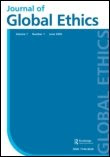Research Events and Seminars08 July 2009 - 09 July 2009 Start time to be announced Conference
Weetwood Hall
Weetwood Hall
This Conference is an opportunity to draw and extend insights from the international and interdisciplinary field of 'white studies' (Bonnett, 1996; 2007) in organisational and policy analysis.
These new theoretical understandings of whiteness and white identities and ethnicities have been developed and debated in the US, Australia, New Zealand and more recently Europe, including the UK. These developments have taken place within disciplines such as communication and cultural studies, sociology, critical race theory, feminism, social geography, history and literary studies. They have profoundly changed conceptualisations of racialisation and gendering, that is the processes by which we are produced as raced and gendered beings.
For example these debates trouble the distinctions between 'race', racism and anti-racisms paving the way for more fluid understandings of the productiveness of power, its uneven and distributed nature. Such approaches develop forceful critiques of the work that goes into creating and maintaining racialised privileges. They also open up the possibilities for more 'positive' and unpredicatble racialisations.
The key themes and questions to be explored are:
How can we understand whiteness in organisations - as property, identity, discursive position, privilege, relations, embodied practices, emotions, imaginaries, temporalities?
What codes of whiteness are reproduced in contemporary social politics?
How do these codes configure relations with the past and future as well as the present?
What new constituencies and claims can be brought into being through concepts of whiteness, white making, white spaces, white gendering and gendered whiteness?
What is the relationship of these codes and constituencies to organisational practices and other social relations? For example those of class, gender, age and sexualities?
How does this play out in different organisational contexts?
Are there differences in public and private sector whitenesses?
How does this play out in different national contexts?
How does organisational policy and practice sustain whiteness?
What are the dangers in making whiteness an object of organisational analysis given its power to attached itself to a range of political and social agendas including 'progressive' postures?
What do these questions mean theoretically, methodologically and practically for critical organisational analysis going forward?
What does this mean for scholars working in this area?
The conference builds on the success of an earlier conference stream at the 2007 Gender Work and Organization conference. The aim is to extend and consolidate this earlier work and the debates it engendered to connect with other work in this area in order to establish an ongoing forum for future collaboration and collective work.
It aims to bring together contributors to the intial stream with a broader range of contributors from different international contexts and disparate fields, including feminist social politics, organizational sociology, public policy, management and governance. The conference also seeks to include a broader range of postgraduate students and participants outside academia with an interest in critical 'race', feminist and other cultural perspectives on organisation power.
Because the conference aims to facilitate ongoing collaborations amongst participants, its design aims to maximise debate around how these new agendas might be incorporated into organisation, management and policy studies fields and into organizational practice more broadly; and how this sort of work may be developed going forward. Thus, it uses a variety of formats for conference contributions including larger key note and plenary sessions, smaller paper sessions and facilitated dialogue and debate sessions focused around particular conference themes.
In order to maximise the number of contributions we are also welcoming proposals for poster presentations which will be displayed in the communal conference areas and will serve as points of further discussion and debate.
Our Plenary Speakers will be:
Aida Hurtado, University of California, USA, Director of Chicano/Latino Research Centre 2005-2008 And author of The Color of Privilege: Three Blasphemies on Race and Feminism. Ann Arbor: University of Michigan Press, 1996
Gail Lewis, Reader in Identities at the Open University, UK, Director for the Identities research strand for the Centre for Citizenship, Identities and Governance (CCIG) and author of 'Race', Gender, Social Welfare: Encounters in a Postcolonial Society, Polity Press, 2000
Nirmal Puwar, Senior Lecturer in Sociology, Goldsmiths, UK, member of the Feminist Review Collective and author of Purwar, N (2004) Space Invaders: race, gender and bodies out of place, Oxford: Berg
Mick Rowlinson, Professor of Organization Studies in the Centre for Business Management, Queen Mary University of London, UK, writes and researches into organizational memory.
Melissa Steyn, Director of Intercultural and Diversity Studies at the University of Cape Town, Soth Africa and author of Whiteness just isn't what it used to be: White identity in a changing South Africa (2001, State University of New York Press)
Vron Ware, Research Fellow at the Open University, UK and author of Who cares about Britishness? A global view of the national identity debate London: Arcadia Books, 2007 Beyond the Pale: White Women, Racism and History London/New York: Verso 1992
Runnymede Trust, London, UK
Other Contributors include: Diane Grimes, Syracuse, USA Berit Gullikstad, Norwegian University of Science and Technology, Norway Shona Hunter, University of Leeds, UK Pauline Leonard, University of Southampton, UK Jennifer Mease, University of North Carolina, USA Patricia Parker, University of North Carolina, USA Elaine Swan, Lancaster University, UK
For further information visit:



